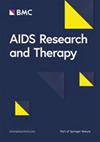在低收入环境中,自我管理对提高艾滋病患者治疗效果的重要性:艾滋病专家和服务提供者的观点
IF 2.1
4区 医学
Q3 INFECTIOUS DISEASES
引用次数: 0
摘要
自我管理是提高慢性病患者生活质量的最重要策略。尽管低收入国家的艾滋病病毒感染者(PLWH)人数不断增加,但在这种情况下开展的有关自我管理的研究却少之又少。本研究旨在了解服务提供者和专家对艾滋病毒感染者自我管理重要性的看法。研究采用了系统化的专家访谈定性方法,以了解专家和服务提供者的观点。研究参与者在东部和南部非洲(ESA)国家具有研究、管理或提供艾滋病服务的经验。所有访谈都进行了录音、转录并翻译成英文。通过将文本与录音进行随机核对,确保了记录誊本的质量。采用 Atlas TI 第 9 版软件支持的主题分析方法。PLWH 面临着各种多维度的问题,这些问题被归纳为背景维度和过程维度。在背景维度下确定的问题包括与疾病有关、与设施有关和与社会环境有关的问题。在过程维度下,主要强调的是源于个人的问题,如无知、对科学问题的信念过强、自卑和缺乏社会支持。这些问题对 PLWH 的自我管理、治疗效果和生活质量产生了有害影响。自我管理程度低也是医疗机构以专业为中心提供服务以及医疗服务提供者无法理解患者在医疗问题之外的需求的结果。本研究的参与者认为,通过加强自我管理来提高治疗效果和生活质量与患者息息相关。艾滋病患者面临着医疗问题之外的多方面问题。艾滋病毒医疗的成功与否,在很大程度上取决于患者的自我管理实践以及家庭、社会和医疗服务提供者的支持作用。发展自我管理实践并将其纳入临床护理将使患者、其家庭和医疗系统受益。本文章由计算机程序翻译,如有差异,请以英文原文为准。
The importance of self-management for better treatment outcomes for HIV patients in a low-income setting: perspectives of HIV experts and service providers
Self-management is the most important strategy to improve quality of life in patients with a chronic disease. Despite the increasing number of people living with HIV (PLWH) in low-income countries, very little research on self-management is conducted in this setting. The aim of this research is to understand the perspectives of service providers and experts on the importance of self-management for PLWH. A systematizing expert interview type of qualitative methodology was used to gain the perspectives of experts and service providers. The study participants had experience in researching, managing, or providing HIV service in east and southern African (ESA) countries. All the interviews were audio recorded, transcribed, and translated to English. The quality of the transcripts was ensured by randomly checking the texts against the audio record. A thematic analysis approach supported by Atlas TI version 9 software. PLWH face a variety of multi-dimensional problems thematized under contextual and process dimensions. The problems identified under the contextual dimension include disease-specific, facility-related, and social environment-related. Problems with individual origin, such as ignorance, outweighing beliefs over scientific issues, low self-esteem, and a lack of social support, were mostly highlighted under the process dimensions. Those problems have a deleterious impact on self-management, treatment outcomes, and the quality of life of PLWH. Low self-management is also a result of professional-centered service delivery in healthcare facilities and health service providers’ incapacity to comprehend a patient’s need beyond the medical concerns. Participants in the study asserted that patients have a significant stake in enhancing treatment results and quality of life through enhancing self-management. HIV patients face multifaceted problems beyond their medical issues. The success of medical treatment for HIV is strongly contingent upon patients’ self-management practices and the supportive roles of their family, society, and health service providers. The development and integration of self-management practices into clinical care will benefit patients, their families, and the health system.
求助全文
通过发布文献求助,成功后即可免费获取论文全文。
去求助
来源期刊

AIDS Research and Therapy
INFECTIOUS DISEASES-
CiteScore
3.80
自引率
4.50%
发文量
51
审稿时长
16 weeks
期刊介绍:
AIDS Research and Therapy publishes articles on basic science, translational, clinical, social, epidemiological, behavioral and educational sciences articles focused on the treatment and prevention of HIV/AIDS, and the search for the cure. The Journal publishes articles on novel and developing treatment strategies for AIDS as well as on the outcomes of established treatment strategies. Original research articles on animal models that form an essential part of the AIDS treatment research are also considered
 求助内容:
求助内容: 应助结果提醒方式:
应助结果提醒方式:


